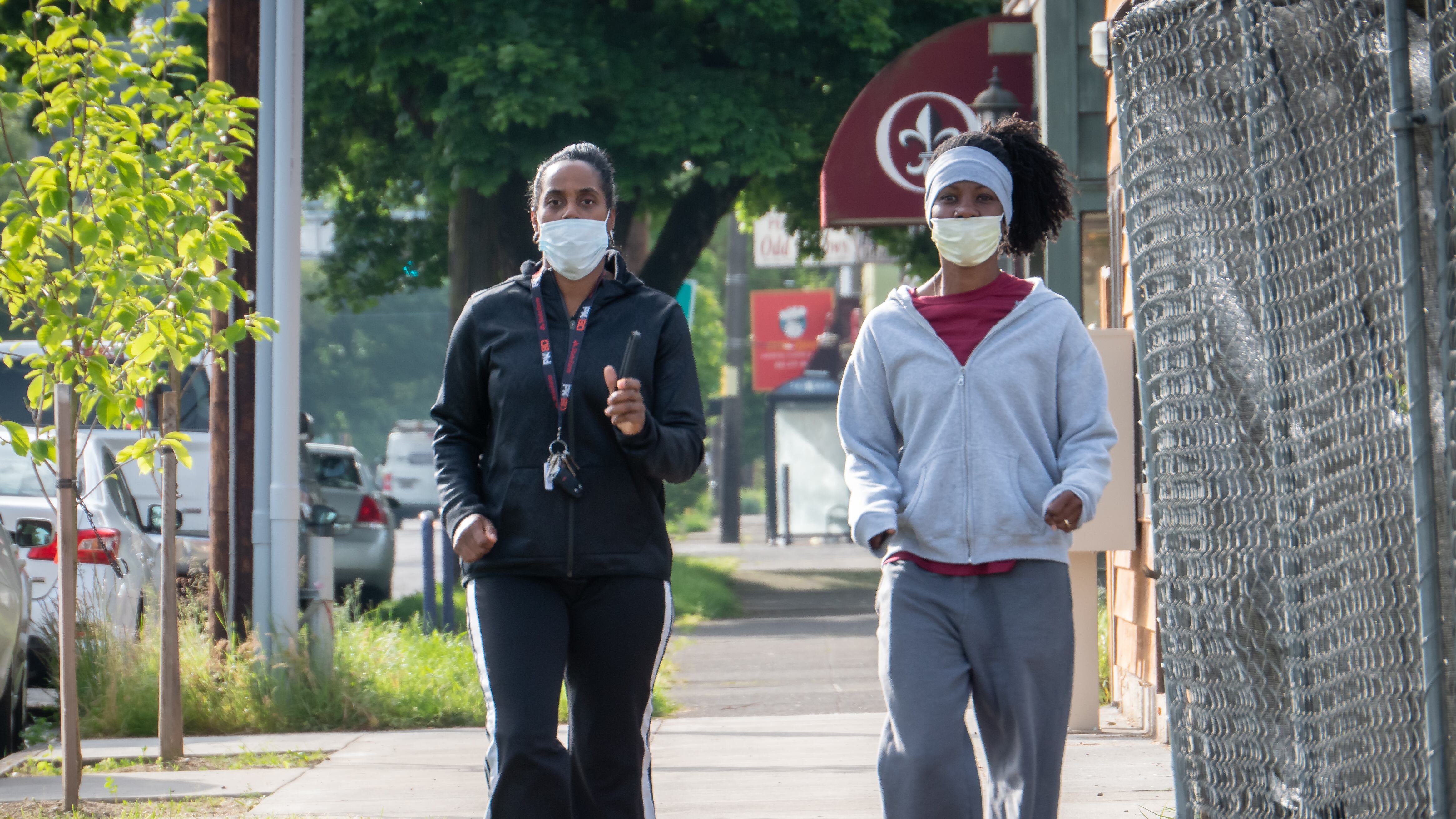After a week's pause, Oregon Gov. Kate Brown will allow Multnomah County to begin reopening Friday, June 19, her from stay-home orders. But she issued a mask requirement for all "indoor public spaces" in the tri-county Portland metro area, mandating that people wear face coverings when they shop or get a haircut.
The approval for Multnomah County comes in spite of a steady rise in new COVID-19 cases in the state's most populous county. Brown acknowledged that rise, but said Multnomah County was not nearing a threshold of severe illnesses that would overwhelm hospitals.
"While Multnomah County has seen an increase in new cases recently, the county has not experienced an uptrend in new hospital admissions, and overall hospitalizations remain well within capacity."
The governor also bound together the three largest counties in the Portland area for all future reopening decisions. From now on, decisions about the reopening of Multnomah County will also apply to Washington and Clackamas counties.
That removes an imbalance on county borders, which incentivized Portlanders to visit the reopened bars and restaurants of suburban towns. (Clackamas County saw a spike in cases two weeks after it started reopening in late May.)
The governor's decision comes amid a sharp increase in COVID-19 cases across Oregon. The state saw its two largest single-day numbers of new cases on Monday and Tuesday—including a whopping 278 people diagnosed yesterday.
Today's figures are less staggering: 122 new cases. The county with the largest spike—Union County, in rural eastern Oregon—today returned from the second stage of reopening to the first, after an outbreak traced to services at a Pentecostal church.
"I instituted the statewide pause because of the rising number of cases in both rural and urban communities," Brown said. "I did this to give public health experts time to assess what factors are driving the spread of the virus and make adjustments to our reopening strategy."
But the most striking aspect of the governor's decision today was the mask mandate, which is effective June 24. It will apply to Multnomah, Washington, Clackamas, Hood River, Marion, Polk and Lincoln counties.
Multnomah County officials today said they were waiting for details from the governor's office about how the policy would be enforced. They weren't sure if the policy would include penalties for failing to wear masks, or how exactly it would apply to restaurants and bars. The governor's announcement did not mention dining and drinking establishments one way or another.
In a press conference this afternoon, County Chair Deborah Kafoury said Brown's office told her the governor delayed making the mask requirement effective until June 24 in order to issue more detailed guidance, "which I'm sure will include how people could use face masks while eating and drinking."
Kafoury added that she had asked the governor who would enforce the rule.
"They don't have the ability to enforce throughout the seven counties that have this face-covering mandate," Kafoury said. "That's one of the reasons they're holding off until June 24."
County officials have been reluctant to create or enforce a mask policy, and expressed reservations again today, saying some residents have medical reasons they can't wear masks, and people of color feared masks would make them a target of racist policing.
Dr. Jennifer Vines, the tri-county health officer, warned this afternoon that reopening was not a return to normalcy.
"Safety is relative," said Vines. "This virus is in our community. We expect cases to go up. There is a tradeoff here that we are making, consciously, and it going to be on everyone to maintain 6 feet distance and wear face coverings."
"This is not a time to open up and go crazy," Kafoury added.

